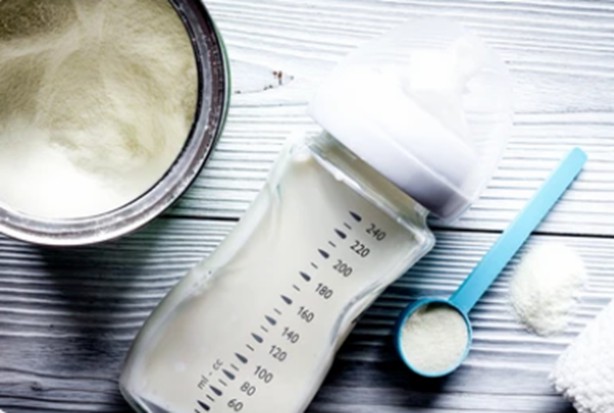Lifeasible offers professional services to help detect chloride content in milk and milk products.
Milk and milk products need to be tested for chloride for several reasons. The chloride of raw milk indirectly reflects the health status of milk-producing animals. Sodium chloride has been added to milk to restore its density and mask the addition of water. The addition of calcium chloride in processing milk is used to contribute to the properties of acid-rennet gels. The high chloride level can have negative health effects, such as clogging arteries, developing a heart problem, and disrupting acid-base balance and blood pH. All these make it essential to monitor chloride in milk and milk products. Lifeasible offers services to help determine chloride in milk, infant formula, adult nutritional products, and other milk products.
 Fig. 1 Infant formula.
Fig. 1 Infant formula.
We determine the chloride of milk and milk products based on the potentiometric titration method referencing international standards. The amount of chloride is quantified based on the content of chloride ions produced when products are dissolved or present in ready-to-feed products. The chloride ions are titrated potentiometrically with a standardized AgNO3 solution, and the endpoint is detected using a silver electrode.
Determination range:
Milk (Raw milk, whole milk, semi-skimmed milk, and skimmed milk)
Milk powder (milk powder, infant formula, and adult nutritional products)
Cheese (soft cheese, semi-hard cheese, and hard cheese)
Butter
Operation flow:

Main reference standard:
ISO 21422:2018
Lifeasible assists in determining chloride in a wide range of milk and milk products to help check the safety of milk and milk adulteration. We also offer many other services to detect milk adulteration, such as milk water adulteration testing, starch adulteration testing, and sucrose adulteration testing. Please contact us to learn more about our services.
References
Lifeasible has established a one-stop service platform for plants. In addition to obtaining customized solutions for plant genetic engineering, customers can also conduct follow-up analysis and research on plants through our analysis platform. The analytical services we provide include but are not limited to the following:
July 13, 2024